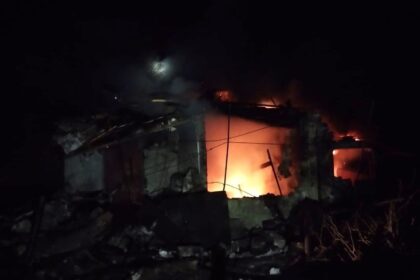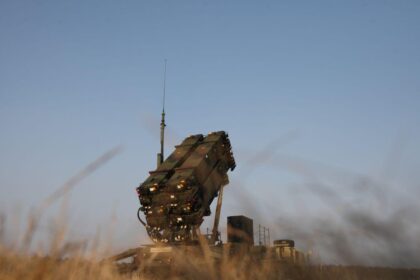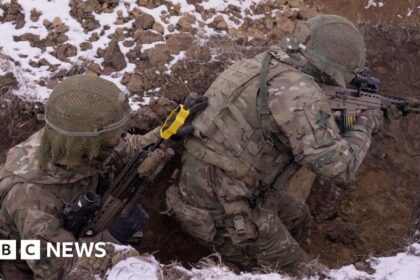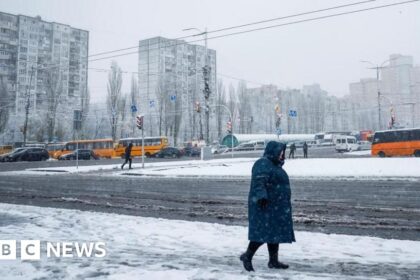**US Slaps Sanctions on Global Network Supporting Iran’s Drone Program**
The US Treasury Department’s Office of Foreign Assets Control (OFAC) has taken a bold step to curb Iran’s growing military drone program. On July 31, the agency imposed new sanctions on a global procurement network accused of supporting Iran’s defense capabilities.
**A Worldwide Network in the Crosshairs**
The measures target five companies and one individual based in Iran, China, Hong Kong, and Taiwan. These entities allegedly worked together to source sensitive technology for the Iranian Aviation Manufacturing Company (HESA), a state-owned defense firm linked to Iran’s Ministry of Defense and Armed Forces Logistics (MODAFL). The US government claims that this network has been providing critical components to HESA, enabling the company to develop and manufacture drones.
**Iran’s Drone Program: A Threat to Regional Security**
Iran has been a key ally to Russia, providing the country with ballistic missiles and thousands of Shahed kamikaze drones. These drones have been used extensively in Russia’s war against Ukraine, with devastating consequences for civilians. The US government is concerned that Iran’s drone program poses a significant threat not only to regional security but also to its own service members and allies.
**The Sanctions: A Strong Message from the US**
The new sanctions send a strong message to those involved in supporting Iran’s military capabilities. As Under Secretary of the Treasury for Terrorism and Financial Intelligence John Hurley stated, “Iran continues to pursue the development of asymmetric weapons capabilities, including unmanned aerial vehicles, to carry out attacks on the U.S., our service members, and our partners and allies in the region.” The sanctions freeze all assets under US jurisdiction, bar US persons from engaging with designated entities without authorization, and risk secondary sanctions for foreign financial institutions that conduct business with these parties.
**A Global Effort to Counter Iran’s Drone Program**
The US government is not alone in its efforts to counter Iran’s drone program. Russia has been regularly deploying Shahed-type drones for nighttime attacks on Ukrainian cities and infrastructure. Ukraine’s intelligence has warned that the Russian defense industry seeks to ramp up the production of these strike drones, aiming to deliver 500 unmanned aircraft per month for Russia’s war effort.
**What’s Next?**
The new sanctions are a crucial step in disrupting Iran’s global procurement network. However, it remains to be seen how effective these measures will be in curbing Iran’s drone program. As the situation continues to unfold, one thing is clear: the US government is committed to protecting its service members and allies from the threats posed by Iran’s military capabilities.
Read More @ kyivindependent.com












